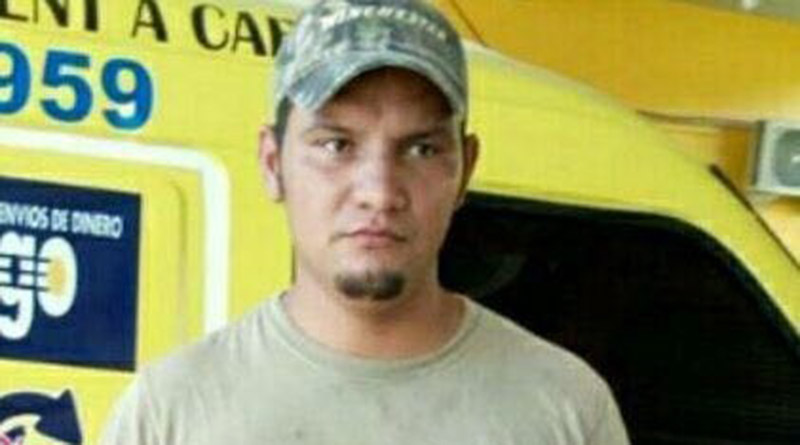Wilmer Paredes was murdered on January 1, 2018 in San Juan Pueblo, department of Atlántida, Honduras. He was shot dead by unidentified people from a grey van.
From November 26, Wilmer Paredes had a prominent leadership role in the coordination of actions for the mobilizations of citizens against electoral fraud.
Wilmer, particularly, had been active in organising local groups to monitor the actions of police and military bodies in the area, to ensure the safety of the local community and to prevent electoral fraud.
Fifteen days before being murdered, Wilmer Paredes was the victim of brutal repression carried out in the municipality of La Masica, where groups of local citizens had gathered to protest against electoral fraud. Wilmer and nine other young men were detained and subjected to degrading treatment, which included being beaten, attacked with electro-shock weapons and tasers and spat upon by state security agents.
After these events, Wilmer was harassed, intimidated and followed by a suspicious vehicle, which allegedly belonged to the national police of San Juan Pueblo.
Having expressed fear for his life, Paredes and the general director of MADJ, denounced this situation to the state security forces and the National Protection Mechanism, who denied him assistance.
Two days later, while travelling home from work on his motorbike, Wilmer Paredes was shot 13 times and died instantly.
